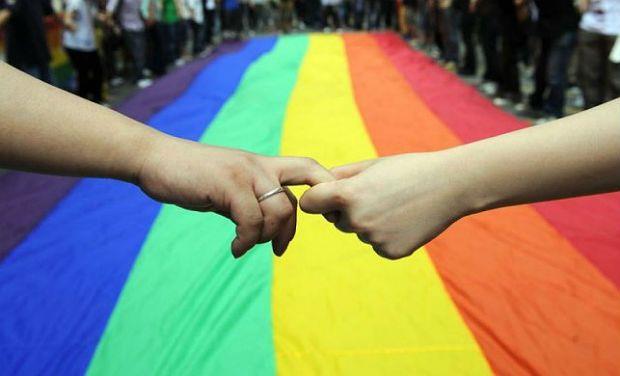A staggering 61% of the population are ready and willing to accept gay marriage and give the LGBTIQ community an equal treatment to heterosexual couples, the iSurvey commissioned by The Malta Independent reveals. This is a great leap in a very short period considering that Malta introduced civil unions between same sex couples only two years ago.
A cross tabulation analysis of the iSurvey provides very interesting findings. Those who voted for the Labour Party in the last general election are among the largest advocates of gay marriage, together with the younger age cohorts.
In total, 61.3% of respondents are in favour of gay marriage, 25% against, 10.1% do not care while 3.7% could not decide.
Respondents were simply asked: Are you in favour of gay marriage? Possible answers included yes, no, don’t care and don’t know.
When analysing the breakdown of data for all respondents, including male and female, split of age cohorts and split along how they voted in the last general election – there are always a higher proportion of respondents in favour of gay marriage than against.
Categories with the lowest proportion of yes answers are those aged 65+, at 42.5%. Those aged between 18 and 24 had the highest proportion of yes answers, at 91.7%. The older the respondent, the fewer proportion of yes answers.
When breaking down respondents’ replies based on how they voted in the last general election, Nationalist Party voters had the least proportion of respondents in favour, at 52.5%. A proportion of 36.4% of PN voters are against, 7% said they do not care either way, while 4.2% could not decide on a position.

With regard to PL voters, 70.1% of respondents are in favour, only 17.4% against, 10% said they do not care and 2.6% were undecided.
This illustrates that on the issue of gay marriage, those who voted PL in the last general election are slightly more decided on the issue.
Gay marriage, as opposed to same sex civil unions, entered into the national discussion on 4 March, shortly before Woman’s Day. At an event organised by the female PL branch, Prime Minister Joseph Muscat, who was fire fighting the Panamagate scandal, declared that it was time for Malta to have a serious discussion on the introduction of gay marriage.
Following Dr Muscat’s declaration, Opposition Leader Simon Busuttilpromptlystated that the civil union bill essentially awards homosexual couples the same rights and privileges as marriage, and mused that it would only be a change in name, expressing his approval.

The PN is traditionally more conservative than its socialist counterpart, having abstained on the civil union bill – citing opposition to the clause which would allow gay couples to adopt – and having been outright against the introduction of divorce. This is reflective of how the core PN voting grouptends to identify with more traditional values.
In fact, there is a 17.6 percentage point difference between the proportion of PL voters and PN voters who are in favour of gay marriage. In addition to this, the proportion of PL voters who opted for the ‘don’t care’ answer is three percentage points higher than their PN counterparts.
In light of both mainstream political parties expressing their support for gay marriage, a number of LGBTIQ rights advocates have questioned when political statements will translate into concrete action.
Unsurprisingly, a proportion of 81% of respondents who were not eligible to vote in the last general election are in favour of gay marriage, indicating a strong liberal agenda in the minds of new voters. A proportion of 14.3% of respondents who were not eligible to vote opted for ‘don’t care,’ which is the highest proportion of this response based on voting – which includes the PL, PN, AlternattivaDemokratika, those who did not vote and those who were unable to vote.
More females than males are in favour of gay marriage, at 62.7% and 59.7% respectively. In line with this, less females than males are against gay marriage, at 24.3% and 25.6% respectively. A higher proportion of male voters do not care either way while a higher proportion of female voters opted for the ‘don’t know’ answer.

When reviewing the spread of socio-economic classification among respondents no discernable pattern could be identified among those who responded in favour: upper middle and middle class at 63.2%, lower middle at 70.1%, skilled working class at 62.6% and working and non-working class (casual workers, pensioners etc) at 42.1%.
With regards the spread of locality among respondents, interestingly the region with the least proportion in favour, and the most against gay marriage is the Gozo-Comino district, at 49% and 33.3% respectively.
The Northern district, Western district and Southern Harbour district all registered approval ratings of 58.7%, 56.3% and 54.1% respectively. The highest proportion of approval ratings were registered in the Northern Harbour district and the Southern Eastern district, at 71.3% and 72% respectively.
Localities which are synonymous with embracing a more liberal philosophy, such as Sliema, St Julian’s and Swieqi all form part of the Northern Harbour district, which could be why it registered such a high approval rating for gay marriage. The Southern Eastern district is made up Birzebbuga, Ghaxaq, Gudja, Kirkop, Marsaskala and Marsaxlokk are traditionally Labour strongholds which would explain the high approval ratings.
This survey was commissioned to Business Leaders Malta by this newsroom. A total of 600 respondents were used, representative of age, gender and spread of locality. The margin of error with a sample of this size is +/- 4%.